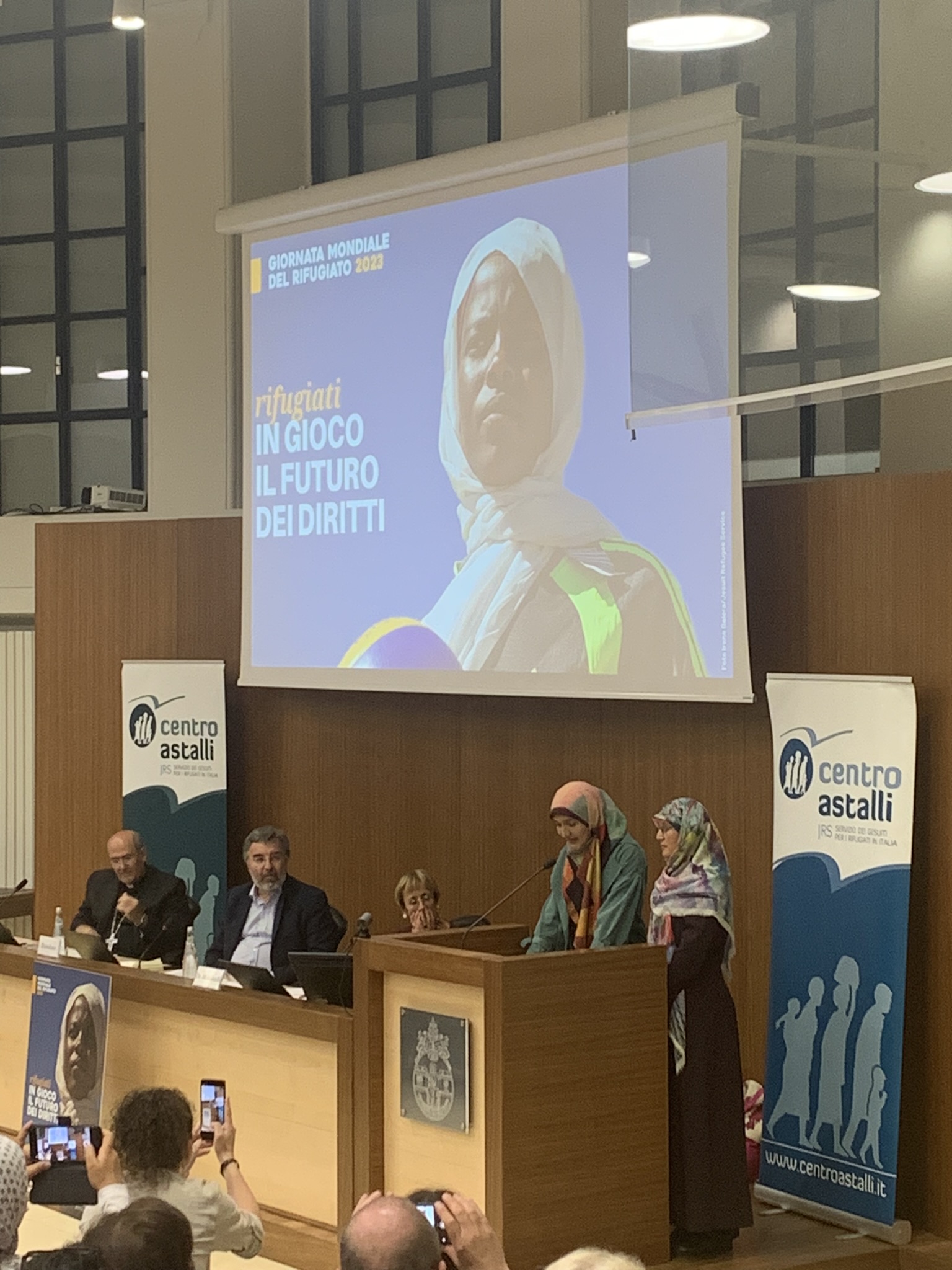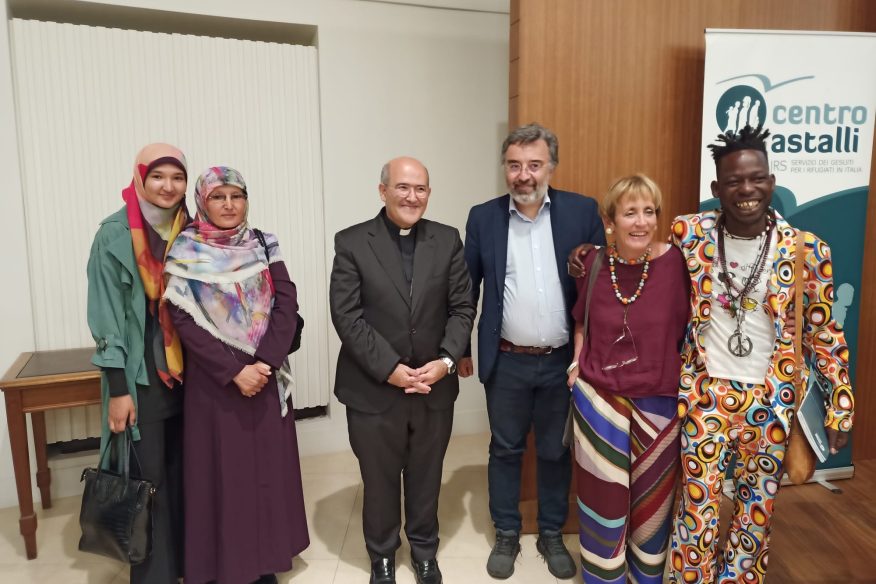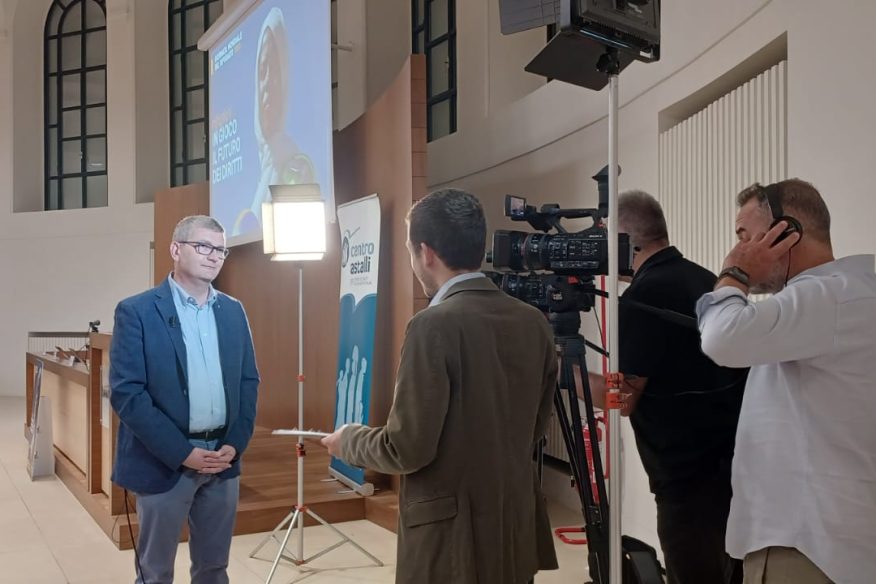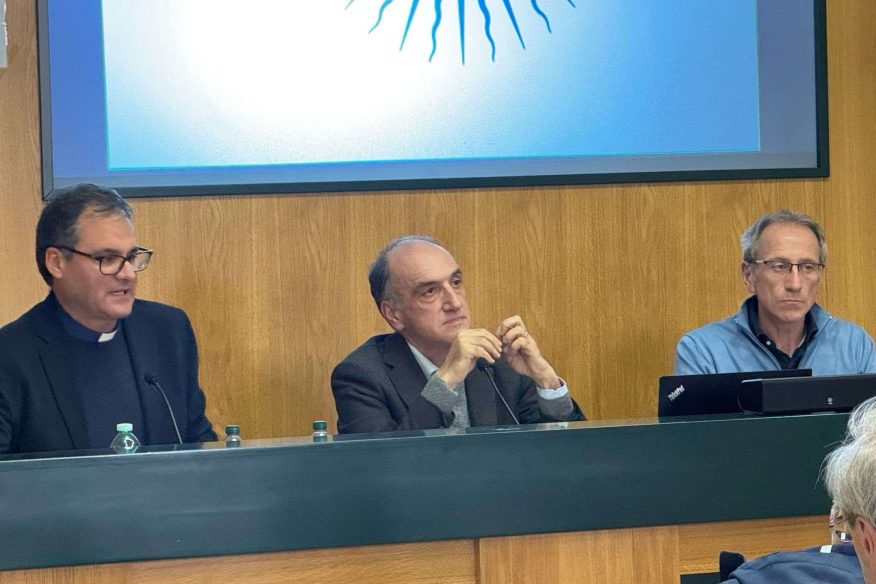Refugees: the future of their rights is at stake

There is concern about refugees’ right to asylum and other general rights. During the days of the desired “national mourning , it becomes even more strident that there are lives that count, and have many privileges, and bring the country to a standstill, and lives that do not count, that have no right to have rights, that end up disregarded by all along the routes of freedom at sea or on land, like those people who lost their lives in the shipwreck in the Aegean sea.” On 15 June Fr. Camillo Ripamonti, launched the event organised by Centro Astalli, at the Gregorian University, for Refugee Day 2023. He spoke about the shipwreck that had just taken place near Greece, which, according to the survivors, brought to the bottom of the Mediterranean Sea a mass of hundreds and hundreds of people.

But Astalli’s president also speaks about the other shipwrecks, including that of the right to asylum, which according to the Constitution should be enjoyed by ‘foreigners who are prevented in their own country from effectively exercising the democratic freedom guaranteed by the Italian Constitution’. Instead “the EU sacrifices innocent victims in defence of its borders. Behind the propaganda for security there is only the will to remove completely any aid necessary and make agreements with dictators to imprison those who leave. The governments’ concern is to make the right to asylum more difficult to attain,’ Fr. Ripamonti says. That is why the issue is bigger, as the title of the meeting indicates, ‘Refugees. The future of their rights at stake’.
Europe’s mission
“This tragedy shows us that we are not fulfilling Europe’s first mission, that is to be a place of freedom, democracy and aid to those in distress,” journalist Marco Damilano says. “Europe has become a summation of selfishness, of power relations. And emergency has become a meaningless word with regard to migration, and as regards all the other big issues of our time’. The afternoon initiated, as in Astalli’s tradition, with the speeches of the protagonists of this event. Yenmery Coronado, a 50 year old Venezuelan teacher recounts her flight to escape from a country reduced to a life-threatening situation, where every manifestation of dissent is violently repressed. “My husband was a union leader, and he was beaten several times in the street. The military forces were looking for us. We were terrified.” Fatima, the daughter of Sakineh Hosseini, an Afghan, translates for her: “In 2001, I was elected as the people’s representative in the Loya Jirga, the great assembly of the Afghan people. I was a representative of the Herat Provincial Council, a member of the committee for the prevention of violence against women, a volunteer of the Human Rights Defenders Committee and founder of the Shegofa Women’s Social Cultural Complex’. A political commitment that, with the return of the Taliban, has meant risking her life: ‘I have been humiliated, threatened and attacked many times. One night they threw grenades at my house and tried to kidnap me”. Sakineh and her family were saved thanks to the evacuation organised by the Italian government. “Today I feel very lucky to be alive together with the people I love. Every day I think of my land and the many women who remained in Afghanistan. I was a point of reference for them and the thought of not being able to help them wears me out every night and does not let me sleep. I dream of the day when I return to Afghanistan to give hope to a land without peace”.
The indifference that blinds
These are the spoken words of those invisible persons, those forgotten stories to which Pope Francis wanted to give voice in so many messages. This was recalled by Cardinal José Tolentino de Mendonça, Prefect of the Holy See’s Dicastery for Culture and Education. Ten years ago, the Pope’s visit to Lampedusa, “to a contemporary frontier, invisible to the eyes of so many, faceless people, emptied of a history” lifted “the veil of indifference that prevents us from seeing others. Not seeing and not reacting in front of a drama, a genocide, is something monstrous. We are co-responsible for all these human massacres”. “Build hospitality instead of hostile insensitivity” is the cry that has continued to resound for ten years. In the 2018 peace message, the Pope states that the gaze that rests on refugees is “contemplative”: “The Pope looks at them as a resource, not just victims or a problem, but teachers of humanity. We need to work on cultural citizenship’. Closure, the prelate concludes, ‘is a declaration of death for ourselves’.
The right to become who we are
“We are all children of migrants, and we should remember this when establishing measures that are a disgrace with regards to reception,” recalls writer Paolo Rumiz, in a video message. “If Europe does not put more Europe in its Atlanticism we will be swept away by the wind of history”.
Regardless of where one is born, in the sub-Saharan desert or in Central Park, ‘everyone should be given the chance to become who they want to be with their own ability, culture and religion’, philosopher Roberta De Monticelli adds in her speech.
The meeting concluded with the singing of the song by actress Evelina Meghnagi, with a message dedicated to refugee women, to whom the proceeds of the CD ‘Shahida – traces of freedom’ will be donated.


